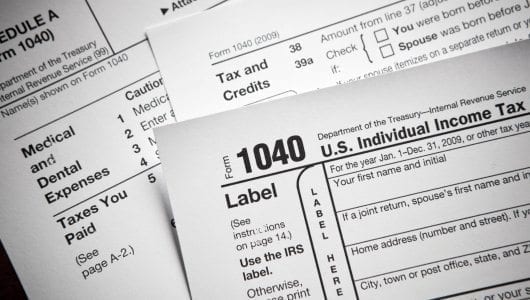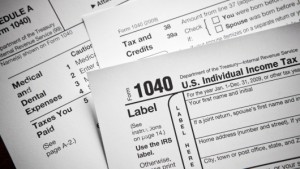
Don’t miss these federal tax savings

If you are self-employed or a partner in a business and purchase health insurance for yourself and your family, you can deduct the cost.
No one enjoys paying taxes, but this year you could be pleasantly surprised to learn you qualified for some new federal tax savings. Answer “yes” to any of these questions, and you may be able to reduce your federal tax liability for 2011.
Did you buy new or used equipment?
The Federal government provides two enhanced ways to write off almost any business asset you purchased in 2011 using Section 179 expensing and 100 percent bonus depreciation. Section 179 expensing allows you to expense the full amount of qualifying equipment, computer software or other qualifying property up to $500,000 per year. Both new and used purchases qualify. It’s important to note you can only use Section 179 if your business made a profit in 2011.
Key qualifier for Section 179: Business has to be profitable. A Section 179 write-off can’t be used to create a business loss or increase a loss for the year.
If you didn’t make a profit in 2011, don’t worry. If the asset was purchased new, you can still qualify for federal tax savings through accelerated bonus depreciation. Businesses that bought a qualifying item in 2011 can claim 100 percent of its cost as long as it was put into service before January 1, 2012. After that date, bonus depreciation will be reduced to 50 percent for assets put into service before January 2013.
Key qualifier for Bonus Depreciation: Equipment must be purchased new. Qualifying assets include both tangible property, such as machinery, vehicles, furniture and equipment, as well as intangible property, such as computer software. Land purchases don’t qualify.
You can use both Section 179 and bonus depreciation, but you can’t claim both on the same asset.
[tip id=”6984″]Did you purchase health insurance for yourself, your family or your employees?
If you are self-employed or a partner in a business and purchase health insurance for yourself and your family, you can deduct the cost. This reduces your taxable income and self-employment tax. Before the law change, the cost was only deductable on your income tax.
Key qualifier for deducting health care insurance: You must purchase insurance through your business. You can’t claim this benefit on a secondary business if your full-time job supplies employer-subsidized health care. Similarly, if your spouse gets insurance through an employer, you cannot deduct those costs.
Key qualifier for deducting employee healthcare insurance costs: 25 or fewer employees and average wages less than $50,000. If you employ 25 or fewer workers and pay at least 50 percent of their healthcare, the Federal government is ready to issue you a credit, provided those employees earn an average of $50,000 or less. Credits vary, but the largest credit available (35 percent of costs) is for businesses with 10 or fewer full-time employees with annual wages that average $25,000 or less. The credit phases out for firms with 25 employees or that pay average wages above $50,000. In 2013, the highest tax credit increases to 50 percent.
Did you hire an unemployed person in 2010 who is still with your company?
If you hired an unemployed person between February 3, 2010, and January 1, 2011, you probably qualified for a 6.2-percent payroll tax incentive in 2010 under The Hire Act. This year, for each worker you hired who stayed with the company at least a year, the government has a general business tax credit of up to $1,000 per worker.
Did you build a new energy-efficient home in 2011?
Home builders are eligible for a $2,000 tax credit for a new energy efficient homes that achieve 50 percent energy savings for heating and cooling above the 2004 International Energy Conservation Code (IECC) and supplements. At least 1/5 of the energy savings must come from building envelope improvements.
[tip id=”6989″]Business expenses you can deduct
- Business start-up costs
- Employee pay
- Retirement plan contributions for yourself or employees
- Equipment rental costs
- Fuel tax on off-road equipment
- Insurance
- Business use of your home
- Business use of your car
- Qualified disaster expenses
- Retired asset removal costs
—By J. Costin

